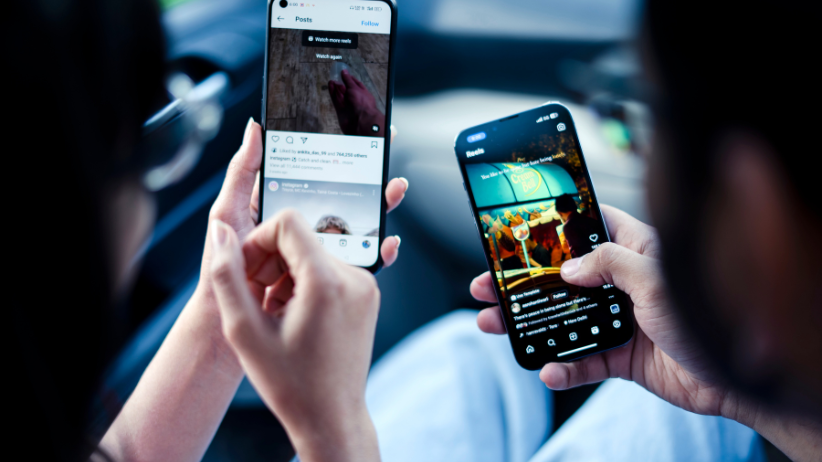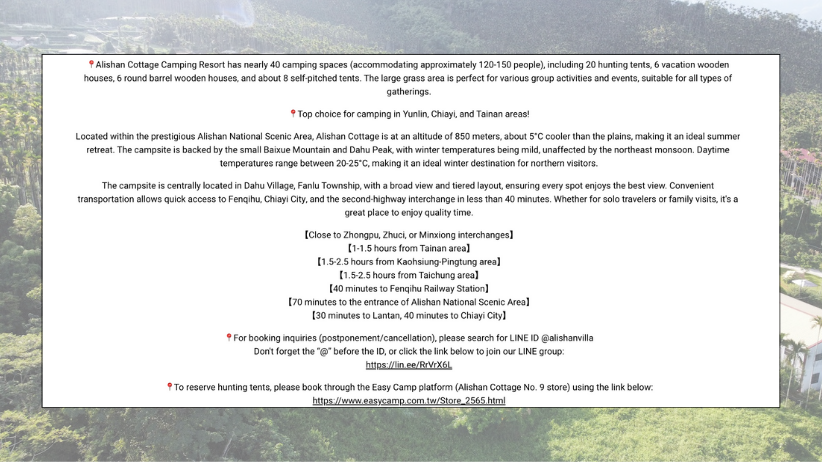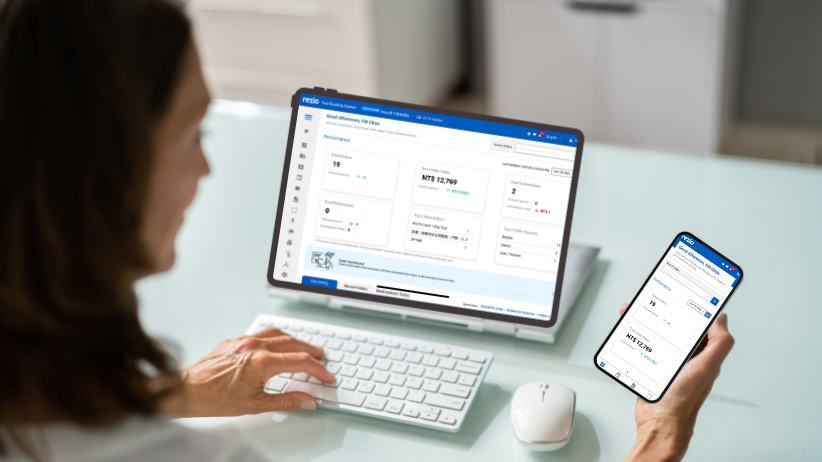
AI is Changing Travel Habits!
AI tools like ChatGPT, Gemini, and Perplexity are gradually shaping the way people plan their trips. Many travelers are getting used to asking questions in a conversational way. Instead of typing keywords like “Bangkok free trip recommendations”, they now ask AI: “I have a 3-day itinerary with kids — what attractions do you suggest?”
This shift means that search is no longer just about keywords, but about whose answer travelers trust.
And that also means: AI’s answers may not directly bring bookings — so brands need to think about how to make their content a trusted source for citation.

From Keywords to Citations: The New Competition
In the past, SEO competition was all about ranking on Google’s first page. But in the AI search era, the rules have changed: the real challenge is whether your content can be cited by AI models.
Different AI models show different citation preferences:
Gemini / AI Overviews: Embrace UGC, drawing from diverse sources such as forums, social platforms, and blogs.
Perplexity: Trusts reviews and expert websites, prioritizing firsthand experiences and authoritative perspectives.
ChatGPT: Authority-first, avoiding commercial sources, and favoring government, academic, and nonprofit information.
These differences remind travel brands: relying on just one channel is no longer enough. To increase your chances of being cited across AI platforms, you need to invest in social content, brand pages, and expert reviews.
At the same time, this links closely to how travelers perceive AI. According to Booking.com’s Global AI Perception Report released on July 24, 2024, in Singapore: “ 91% of people are excited about AI, but only 6% completely trust its recommendations. The survey, covering 33 markets and over 37,000 consumers, revealed real insights into how travelers are using AI in daily life and travel planning.”
Although people are starting to rely on AI, the trust gap remains — and that gap can be bridged by social interaction and authentic word-of-mouth.

In the AI search ecosystem, social platforms are becoming key sources of influence. AI models favor content that is real-time, authentic, and interactive, making social strategies increasingly critical.
Among these, Instagram has become the travel industry’s breakout amplifier. According to surveys, 71% of travel brands say Instagram brings the most traffic and engagement compared to other platforms.
This is not only due to its strong visual appeal and user stickiness, but also because Instagram is now directly linked with search. Starting July 10, 2025, Instagram announced that public posts from professional accounts can be indexed by Google. This gives content from over 200 million accounts the opportunity to appear directly in Google search results.
A senior marketing strategist also emphasized:
“Visual Instagram content – which many travel brands today lead with – could now outrank traditional articles when they better match search intent.”
That means brands can no longer treat IG as just a channel for exposure or engagement. Instead, they need to manage it like a website, by:
Writing captions with search intent in mind
Using proper alt text for search engines
Ensuring hashtags reflect how users actually search
When IG content can appear both on social and in Google search, it’s not just a “social showcase” anymore — it becomes a key lever for increasing citation in the AI era.

Building Your Own Brand Page: The Trust Backbone of AI Search
If IG is your external amplifier, then your brand page is the trust anchor. In AI search, relying solely on social traffic isn’t enough. AI models prefer to cite sources that are stable, authoritative, and consistently updated.
That means your brand website should:
Be complete: include product details, FAQs, and travel guides
Stay updated: improve SEO and increase chances of being recognized as a reliable source
Be official: serve as a clear reference point for AI, preventing users from being redirected to other platforms
IG excels at quick reach and buzz, while brand pages consolidate traffic and build trust — together, they form an AI-citable, conversion-ready strategy.
Understanding the trend is one thing, but execution is what drives results. Travel brands can take action in three ways:
1. Use Social Media to Create Buzz and Drive Traffic
It’s not just about posting pretty photos or promotions — the key is designing content around user search intent.
Action Points :
Reels: Focus on practical tips like how to travel, how to save, must-visit spots.
Hashtags & Keywords: Align with terms people might type into Google/AI.
Interactive Content: Use Q&A, polls, and stories to increase engagement.
Example : How could a camping operator do? ( ALISHAN VILLA )
Reels: Share “3 family-friendly camping styles”.
Hashtags: #MiaoliCamping #FamilyCamping #AlishanCottage
Polls: Stories with “Which do you prefer? Tent Camping 🏕 or Glamping ⛺?”
Goal: Make IG more than a showcase — let it enter the cycle of Search → Discover → Citation.

2. Use Brand Pages to Capture Traffic and Build Trust
The attention drawn from social must ultimately land on a trustworthy landing page.
Action Points:
Smart SEO: Place relevant keywords in your page titles (H1) and descriptions (Meta) so AI and search engines can easily find you.
Complete Info: Provide clear product details, pricing, and FAQs to reduce customer doubts.
Consistent Branding: Use a unified tone and identity so AI recognizes your page as the “official authority.”
Example:How could a camping operator do? ( ALISHAN VILLA )
Goal: Make your brand page the go-to trusted source for both AI and travelers.
Branding: highlight values like family-friendly, safe, nature-rich experiences.
Title (H1): “Rated 4.7★ on Google — A family- and group-friendly campsite perfect for gatherings, events, and outdoor fun.”
Meta Description: “Located in Taiwan’s Alishan Scenic Area at 850m elevation, Alishan Cottage offers a cooler climate, family-friendly facilities, and scenic hiking — the perfect summer escape or winter retreat.”
Product Info: Include essentials such as transportation, gear rental, and on-site activities.

3. Integrate Data and Optimize the Funnel
Exposure and a landing page aren’t enough — data tracking and process optimization are crucial.
Action Points:
Tracking: Monitor flows from social → brand page → booking with tracking codes.
Analysis: Identify which content gets the most clicks and longest dwell times.
Optimization: Test different formats (visuals, videos, long-form) to see what drives engagement and citations.
Goal: Build a sustainable growth engine powered by social traffic × brand trust × data optimization.
The Growth Formula for Travel Brands
The rise of AI has ushered travel search into a new era. For brands, one platform is no longer enough — you need both the expansion power of social media and the trust backbone of brand pages.
The new rule of visibility is no longer just about ranking for keywords. It’s about making AI cite you and making users trust you.
Only by building a dual engine of Social × Brand Pages can travel brands stay discoverable in the AI era and truly convert visibility into sales.

How rezio Helps as Your One-Stop Booking System
So how does rezio support you in this journey?
Social-to-Booking Conversion: Add booking links to your IG or Facebook profiles and posts, guiding followers straight to your branded booking page to boost conversions.
Branded Website: Build your own site in just 10 minutes — clean, user-friendly, and with SEO tools built-in to improve discoverability by AI and search engines.
Online Payments: Offer multiple payment options, reducing hesitation and increasing booking completion rates.
With rezio, you can fully connect the growth formula of “Be Found → Be Trusted → Be Booked”, turning your media presence into real bookings.
Real case
ALISHAN VILLA, located in Taiwan’s Alishan National Scenic Area, is a popular campsite loved by families and groups, offering a wide range of tent options. However, with only a small team running the site, how can they maintain booking efficiency, customer service, and multi-site management with limited manpower?
➤ Learn more: [rezio Customer Story] ALISHAN VILLA
Want to know how rezio can help make your experiences more visible and easier to book? Contact us today to schedule a one-on-one consultation with our team!
If you enjoyed this article, feel free to explore more related stories on our blog.
📍What is Online Booking? 5 Signs It's Time to Upgrade
📍 How P.P. Tour Built a Successful Travel Brand with Three Strategies and Digital Tools
📍The Recipe for Success: How Cookinn Taiwan Master Multi-Channel Bookings with rezio
